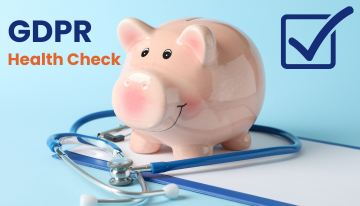General Data Protection Regulation [GDPR]is a comprehensive data protection law that has massively changed the way companies manage their clients’ personal information. For small businesses implementing the GDPR may appear to be an intimidating task, but it is necessary to gather clients’ personal information and avoid expensive penalties.
GDPR is intended to safeguard the privacy of people and their private information in the European Union (EU). Business firms are required by law to assign the correct lawful basis before collecting personal information, ensure data accuracy, provide individuals with access to their records and enable them to request data deletion. Non-compliance can lead to penalties which can be either a fine of up to €20 million or 4% of the total global income, depending on whichever will be the higher.
For small businesses, conducting a data audit is the first step towards GDPR compliance. Identify what personal data you collect, how it is stored, and who has access to it. Next, review your privacy policies to ensure they are transparent and easily understandable. Inform your customers about the data you collect, the purpose of collection, and how it will be used.
Implement good data protection measures such as encryption and secure storage solutions to safeguard personal data. Ensure that your staff is trained on GDPR principles and the importance of data protection. Review and update your data protection practices regularly to stay compliant with any changes in regulations.
Lastly, use Data Support Hub if your business processes large amounts of sensitive data. We will oversee data protection strategies and ensure ongoing compliance. By taking these steps, small businesses can navigate the complexities of GDPR, build customer trust, and foster a culture of data protection.

